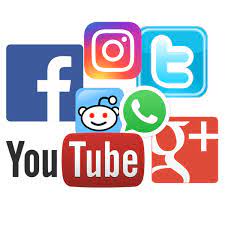Social media has become an integral part of everyday life. However, numerous studies have produced conflicting results on how the use of these applications affects the mental health of their users.
“Previous studies have only looked at single variables such as depression or general health. Or the type of social media use was not clearly defined,” said Sophie Lohmann, from the Max Planck Institute for Demographic Research (MPIDR) in Rostock, Germany.
The new study, published in the journal PLOS Digital Health, showed that people who use multiple social media channels are no happier or unhappier than others.
“There is very little correlation between the use of multiple social media platforms and the outcome variables, such as relationship satisfaction, financial satisfaction, general satisfaction, trust in the state, and so on. When we apply our method, all negative effects disappear completely,” Lohmann said.
The assumption that the use of multiple channels leads to overload is not confirmed.
Further, the researchers said the topics are diverse and, above all, very complex.
It is therefore important to define exactly what is meant by ‘social media use’ and not to lose sight of the complexity of the platforms. “Twitter is not the same as Facebook, which is not the same as TikTok. The way people use the different channels is very different. This must not be neglected in research,” Lohmann said.
“In the future, more attention needs to be paid to operationalisation in social media research. It needs to be clearly defined what social media use means and what kind of use has which effect.”
–IANS
rvt/vd





